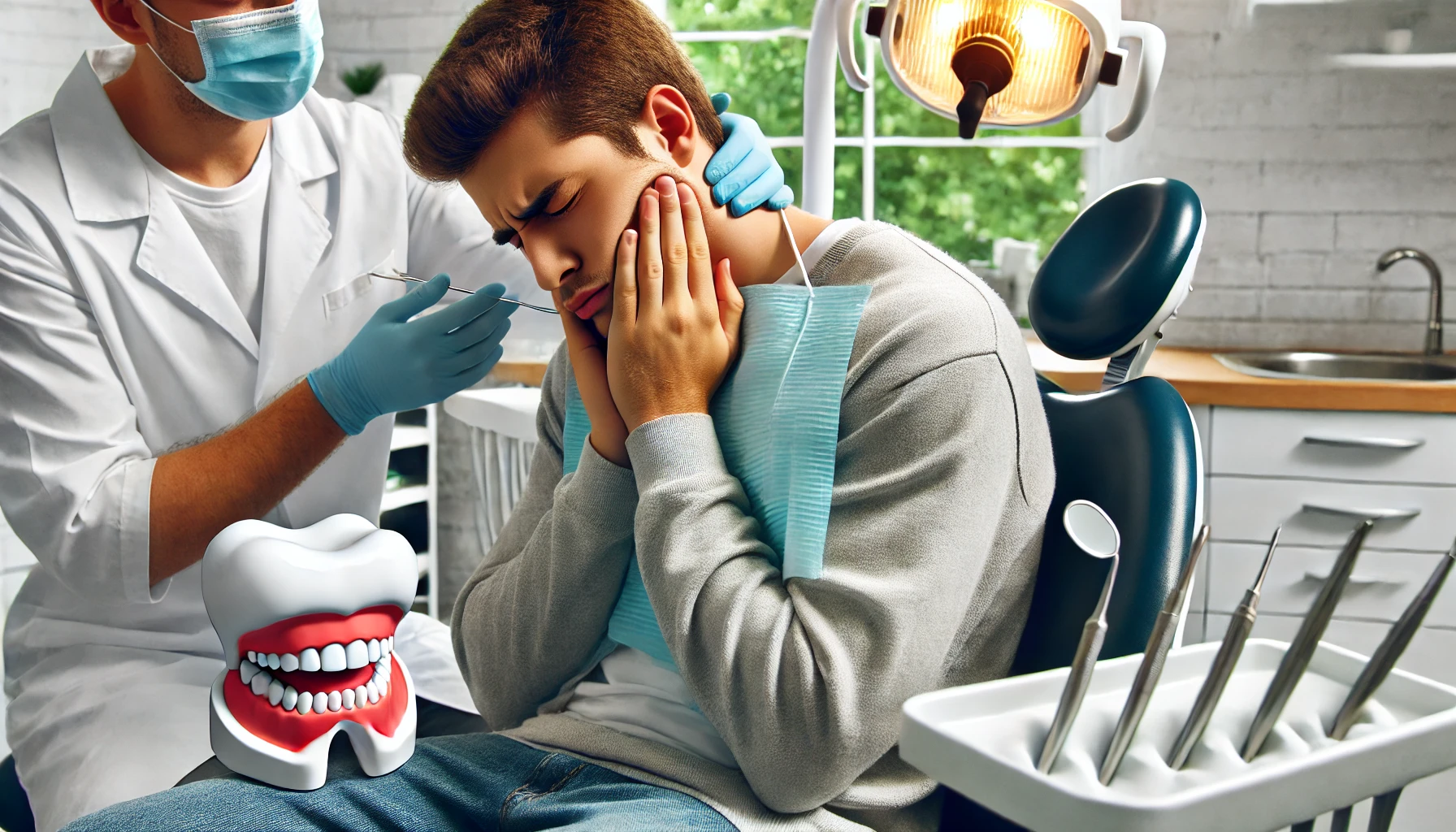Toothache can be incredibly painful and disruptive, affecting everything from eating to sleeping.
Understanding the root cause of a toothache is essential for getting the right treatment and finding quick relief.
This article will explore common causes of toothaches and provide effective pain relief options, along with guidance on when to seek professional dental care.
Common causes of toothache
Toothaches can arise from several different causes, each demanding varying approaches for treatment.
Cavities, or dental caries, are leading culprits, occurring when decay penetrates the outer layers of teeth, exposing nerves. Gum disease, marked by inflammation and infection of the gums, can also lead to significant discomfort and pain.
Other common causes include dental abscesses, which are collections of pus due to bacterial infection, and tooth fractures or chips that expose sensitive inner tissues.
Moreover, emerging wisdom teeth often cause pressure and pain as they push through gums. Identifying the precise cause is crucial for effective relief and treatment.
How to relieve toothache at home
In some cases, toothache pain can be managed at home with simple remedies and over-the-counter medications. However, it’s essential to note that these are temporary solutions and may not address the root cause of the issue.
- Over-the-counter painkillers: Nonsteroidal anti-inflammatory drugs (NSAIDs) such as ibuprofen or acetaminophen can help alleviate toothache pain by reducing inflammation and blocking pain signals.
- Saltwater rinse: Rinsing with warm saltwater can help reduce swelling and clean the affected area, providing temporary relief.
- Cold compress: Placing a cold compress or ice pack on the cheek near the affected tooth can numb the area and help relieve pain.
- Clove oil: Clove oil has natural numbing properties that can provide temporary relief when applied to the affected tooth using a cotton ball.
It’s essential to remember that these remedies are not long-term solutions. If your toothache persists for more than two days or is accompanied by other symptoms such as fever or difficulty breathing, it’s best to seek professional dental care immediately.
When to see a dentist for tooth pain
Persistent or severe tooth pain that doesn’t dissipate within a couple of days is a strong indicator that professional dental care is necessary.
If the toothache is accompanied by symptoms like fever, swelling of the jaw or face, difficulty swallowing, or a foul-tasting discharge, it suggests an underlying infection or more serious condition that warrants immediate attention. Additionally, any tooth pain resulting from a trauma or accident should be evaluated by a dentist.
Timely intervention can prevent complications such as abscesses or the spread of infection to other parts of the body. Even if home remedies temporarily ease the discomfort, they might not address the root problem, emphasizing the importance of a professional evaluation for comprehensive care.
Long-term solutions for toothache relief
For sustained relief from toothaches, addressing the underlying cause is key. Regular dental check-ups and cleanings can prevent issues like cavities and gum disease, reducing the likelihood of pain.
Practicing good oral hygiene, including brushing twice daily with fluoride toothpaste and flossing, helps maintain dental health. If cavities are present, they should be treated promptly with fillings or crowns to prevent further decay. Orthodontic corrections or protective dental guards may be necessary to address bite issues or teeth grinding.
For persistent infection, a root canal or periodontal therapy might be required. By tackling the source of the problem and implementing these preventative measures, individuals can achieve long-term relief and maintain optimal oral health.
Here are some common causes of toothaches and fast relief options:
- Cavities and decay: Untreated cavities are a major cause of tooth pain, as they expose the sensitive inner layers of the teeth.
- Gum disease: Infections in the gums can lead to swelling and pain around the teeth.
- Tooth abscess: A severe infection at the root of a tooth can cause sharp, intense pain.
- Cracked teeth: A crack in the tooth can lead to pain, especially when chewing or exposed to cold or heat.
- Pain relief options: Over-the-counter pain medications, cold compresses, and saltwater rinses can help reduce pain temporarily until you see a dentist.
Summary
Toothaches are caused by various factors, including cavities, gum disease, and cracked teeth.
Quick pain relief options include using over-the-counter medications, cold compresses, and saltwater rinses, but professional dental treatment is often needed to address the underlying issue.
Maintaining good oral hygiene and scheduling regular dental check-ups are key to preventing toothaches in the future.
Questions and Answers
What causes a toothache?
Toothaches are commonly caused by cavities, gum disease, tooth abscesses, or trauma to the teeth.
How can I relieve tooth pain at home?
You can try over-the-counter pain medications, saltwater rinses, and cold compresses to manage pain temporarily.
When should I see a dentist for a toothache?
If you have persistent pain lasting more than a day or two, swelling, or signs of infection, it’s time to see a dentist.
Can a cracked tooth cause severe pain?
Yes, a cracked tooth can expose the sensitive inner layers of the tooth, causing sharp pain, especially when chewing or exposed to temperature changes.
What is the best over-the-counter pain relief for toothache?
Ibuprofen or acetaminophen are commonly used to provide temporary pain relief from toothaches.
Can gum disease cause tooth pain?
Yes, gum disease can lead to inflammation and infection in the gums, causing pain around the teeth.
What should I avoid if I have a toothache?
Avoid hot, cold, or sugary foods, as they can aggravate the pain. Stick to soft foods until you can see a dentist.
Can an abscessed tooth heal on its own?
No, an abscessed tooth requires professional dental treatment, such as a root canal or extraction, to remove the infection.
How can I prevent toothaches in the future?
Practice good oral hygiene by brushing, flossing, and visiting your dentist regularly for check-ups.
Can tooth sensitivity be a sign of a bigger problem?
Yes, sensitivity may indicate issues such as decay, gum disease, or a cracked tooth. It’s best to consult a dentist for a proper diagnosis.















